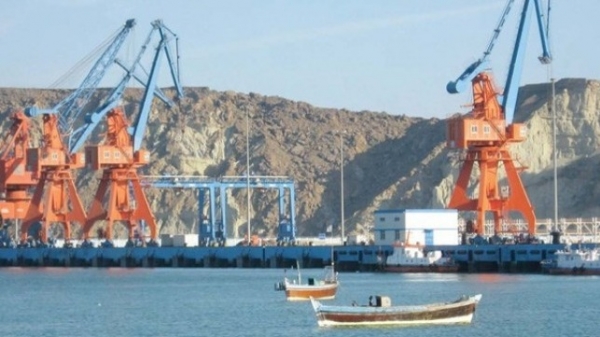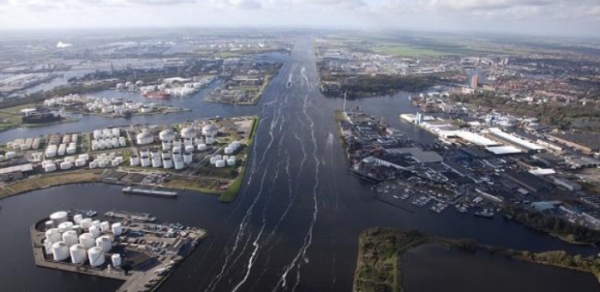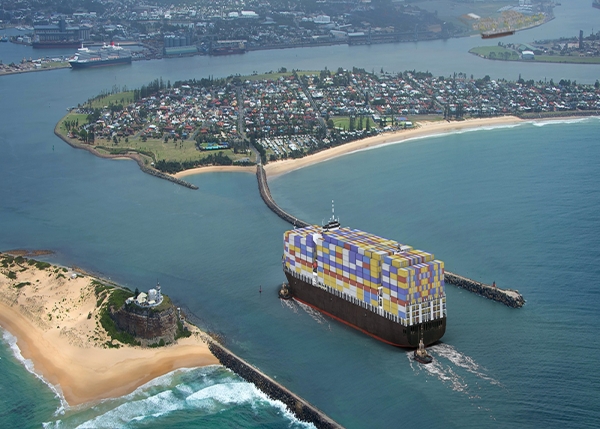News
Latest news
Insurgency Disrupts China's Plans at Port of Gwadar
Persistent attacks by ethnic Baloch separatists are hampering the development of the Chinese-operated port of Gwadar, Pakistan, the linchpin of the China-Pakistan Economic Corridor (CPEC) project.
On May 11, Baloch Liberation Army gunmen attacked the most luxurious hotel in Gwadar, killing five Pakistani citizens and one soldier. The attack followed just one month after the same group killed 14 people on Gwadar's Makran Coastal Highway - including 11 military servicemembers - and six months after an attack on the Chinese embassy in Karachi killed two policemen and two civilians.
The ethnic Balochi homeland (Balochistan) straddles the Pakistani-Iranian border between Karachi and Bandar Abbas, extending inland as far as Afghanistan. It was an independent kingdom until British conquest in the 1800s, and Baloch nationalists would like to see the region regain its political autonomy.
Baloch militants have fought multiple insurgencies against the Pakistani government since the late 1940s, and their recent actions have targeted Gwadar and the CPEC project in particular. The construction of the port and the associated public works have relied heavily upon Chinese contractors, and Baloch groups assert that they have been excluded from the jobs and economic benefits of the project. The Baloch Liberation Army has called for China to cease its involvement in the region's development.
The Pakistani government has pledged to provide security for Chinese interests in Balochistan, and has set up a dedicated 15,000-strong military division for CPEC. However, the hotel attack earlier this month showed that militants are able to penetrate the defensive perimeter and security controls that Pakistani forces have emplaced around Gwadar.
Zhou Chenming, a Chinese military analyst based in Beijing, recently told the South China Morning Post that the security situation might make think Chinese entrepreneurs think twice before doing business in the reason. "Pakistan's economy is not very good, and this port has become very wasteful," he said. "Under these circumstances, including with the hotel attack, how can China conduct its business?"
Reference: maritime-executive.com
India's link to Afghanistan will certainly be via Chabahar port
India’s deputy minister of transport said on Tue. that Chabahar port will be considered as India’s sole connecting point for the development of Afghanistan.
He made the remark in the 1st International Conference on the Development of Chabahar Port in Sistan and Baluchestan province.He reiterated that the Indian trade and business delegation is the largest foreign delegation taking part at the conference.
The Indian deputy minister pointed to the history of economic and cultural cooperation between the two countries, adding “our bilateral business and trade ties date back to many years ago. Iranian and Indian people have traditionally traded with one another from long time ago.”
He then pointed to the significance of Chabahar port for India’s trade with Afghanistan and said, “presently, a major portion of India’s economic exchanges are done via Chabahar port, and we have considered Chabahar port to ship products to neighboring Afghanistan.”Afghanistan’s first cargo of products was shipped to India’s Bombay port via Chabahar port, he added.
Turning to the significance of completion of Chabahar-Zahedan railway for boosting India’s trade exchanges with Afghanistan and the need to complete infrastructures in Chabahar port, he said, “once the construction operation of Qazvin-Rasht-Astara Railway is put into operation, it can be used as two connecting corridors of India with the Central Asia and Caucasus.”
Reference: pmo.ir
Port of Amsterdam Launches Cybersecurity Programme
The Dutch Port of Amsterdam has launched a Cybersecurity Programme in an effort to increase the port community’s digital resilience.
The port sees the importance of the proactive involvement of companies in the port area in joint efforts to improve cyber resilience.
The programme comprises two elements, a hotline and the Cyber Resilient North Sea Canal Area (CYREN) network. The CYREN network collects information about cyber threats and shares this with the affiliated companies.
The hotline provides these companies timely and effective information about potential cyber attacks in the North Sea Canal Area. Companies can contact the hotline when a situation occurs that could impact the port region. The hotline is staffed by the Harbour Master’s Division.
“Data flows and chains are increasingly being linked together and made available to a broad public on the Internet. This offers both opportunities and substantial challenges for information security,” Marleen van de Kerkhof, Harbour Master of Port of Amsterdam and initiator of Port of Amsterdam’s Cybersecurity Programme, said.
“An attack on a customer’s or supplier’s information system not only impacts the company but can often also affect all other companies in its surroundings and disrupt shipping operations: cyber incidents are not limited by physical boundaries. Rapidly sharing the latest information about threats, incidents and perspectives for action increases the cyber resilience of the entire port region,” van de Kerkhof added.
As explained, ports are particularly vulnerable to cyber attacks as they have a wide range of information systems and their data is used by many different parties. What is more, the Netherlands is one of the world’s top three countries affected by cyber attacks.
Information systems contain valuable information that makes them an appealing target for cybercrime. Every company needs to have implemented basic cybersecurity controls such as an awareness programme, segregation of networks, timely installations of security updates and a multi-layered security approach.
CYREN has been recognised by the Ministry of Economic Affairs and Climate Policy through the Digital Trust Center. Several companies and organisations make an active contribution to the development of the CYREN network in the North Sea Canal Area.
Port of Newcastle Becomes Part of EcoPorts Network
Port of Newcastle has become the first port in Australia or New Zealand to commit to meeting global environmental and sustainability standards as set by EcoPorts.
“Port of Newcastle is pleased to be part of a global network of ports operating within an established environmental and sustainability framework that understands and actively addresses the complex aspects of port operations,” Port of Newcastle environmental adviser, Jackie Spiteri, said.
“We not only commit to meeting EcoPort’s world’s-best practice standards, but will work with other ports across the region to champion the environmental and sustainability benefits available for the maritime industry.”
The development comes on the back of Port of Newcastle’s intention to further expand automation and electrification of the port in an effort to improve efficiency, reduce emissions and minimise its environmental impact.
Port of Newcastle is now working towards achieving certification under EcoPort’s Port Environmental Review System, which is independently tested against best practice management by Lloyds Register and is the only system of its type in the world, the port explained.























